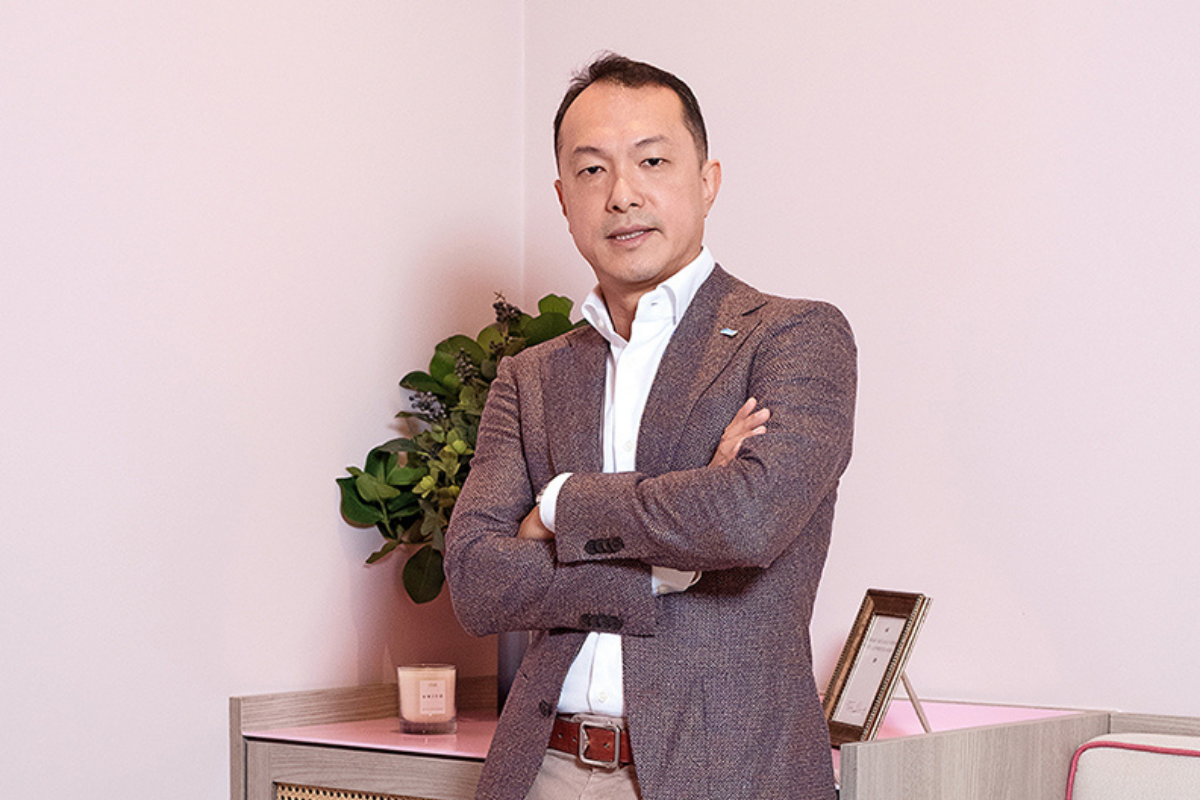“Every Crisis Has its Own Opportunities.”: Dr Beng Teck Liang
Singapore Medical Group’s early investment in telehealth technology seemed like a misfire, but that changed when COVID-19 redefined the doctor-patient relationship. Now, the company’s CEO, Dr Beng Teck Liang, believes anything is possible.
When the COVID-19 pandemic tore across the world, a unique situation unfolded: never before in modern history had so many people been so fixated on health. The healthcare sector leapt into action, providing care and support in the absence of a definitive cure and adapting age-old practices to work around a virus of outrageous contagiousness.

This supreme test forced most healthcare businesses to put future plans on hold, but some forward-thinking companies have instead found the crisis to be a transition to a new way of doing business.
"The way I look at it, every crisis has its own opportunities," says Dr Beng Teck Liang, CEO of Singapore Medical Group (SMG); a company that, pre-COVID-19, had been regarded as a major disrupter within the healthcare industry because of its focus on innovative technology.
Despite the year that was, that disruption continues, thanks to some prescient choices. "There are two parts to our business; domestic and overseas," Dr Beng explains. "Domestically, we have worked to reduce our reliance on medical tourism since 2015, when it was 50% of our business.
In 2020, only 15% of our business was exposed to medical tourism." Once Singapore’s borders began to close in response to the pandemic, the nation’s medical tourism industry evaporated.
"But because we lowered that percentage over the past few years, we were much better equipped to cope," Dr Beng explains. Although some SMG clinics were forced to shutter during the first few months of the crisis, there’s since been a surge as health care, an essential service, recovered.
"Even during the worst months of the pandemic, more than 80% of our clinics continued to operate, albeit at a slightly lower pace," Dr Beng says. "And the business continues to be profitable."
A large part of SMG’s resilience during the pandemic can be chalked up to a canny decision to partner with Singapore telehealth platform HiDoc. Dr Beng admits HiDoc, which offers videoconferencing services to patients and provides accredited specialists access to patient health records, was a risk.
Because people are becoming accustomed to it, I believe telehealth is here to stay.
"Initially, we were of the view HiDoc would be the future of the business, but when we launched in early 2019, we had no crisis, no COVID-19, so business was relatively slow," he says. Throughout the year, HiDoc struggled to gain traction and by the year’s end, only 30 or so specialists were on the platform.
"And then lo and behold, COVID-19 hit." The advent of the pandemic, the symptoms of which were perfectly suited to the remote-friendly nature of telehealth, saw the number of HiDoc users skyrocket.
"We’re now in excess of 130 specialists and 50 GPs," Dr Beng says. "We’re thrilled with the uptake and because people are becoming accustomed to it, I believe telehealth is here to stay."
The performance of SMG’s overseas component has surprised even Dr Beng. "In Australia, we own a fertility service, City Fertility, which is one of the largest in the country. During lockdown, people have had time to consider starting a family and they’re seeking all options, so we’ve seen a nice bump in that business," he adds.
In Indonesia, SMG’s LASIK and ophthalmology clinics have also continued to run "extremely well" during the pandemic. "Again, like most of the aesthetic businesses we own, we’re seeing a nice boost in demand that’s taken us by surprise."
The success has encouraged Dr Beng and SMG to continue to invest in new technology and overseas opportunities, even when they’re not a sure bet. "When we started the business, we were resolute on the fact we needed to grow overseas. Throughout the crisis, those markets have remained resilient and shown amazing signs of fortitude," he says.
"Secondly, we made the decision to invest in new and unproven technology, and again we’ve seen those technologies take off and establish themselves. It’s satisfying to look back and be able to say, ‘We made the right choices.’"
Crucial to SMG’s success is its large network of suppliers. With so many arms of business in so many regions, finding key suppliers and partners in each area is important. "Siemens has been a strong partner for imaging, for example, and Canon is another. Our drug suppliers have also been very supportive," Dr Beng says.
"So pushing forward, we hope to have a more regional relationship with a diverse group of suppliers." Dr Beng adds that future plans for SMG involve further investment in cutting-edge technology and regional expansion.
"We want to get a hell of a lot bigger," he says. "In particular, to take the capabilities of best-of-breed businesses within SMG out into the world, and I think we’re in a very good position as we go into the future. Watch this space."
Proudly supported by: